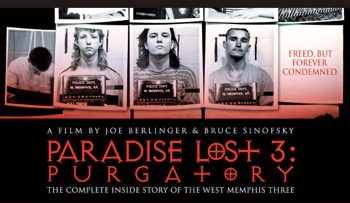Rascals case in brief
In the beginning, in 1989, more than 90 children at the Little Rascals Day Care Center in Edenton, North Carolina, accused a total of 20 adults with 429 instances of sexual abuse over a three-year period. It may have all begun with one parent’s complaint about punishment given her child.
Among the alleged perpetrators: the sheriff and mayor. But prosecutors would charge only Robin Byrum, Darlene Harris, Elizabeth “Betsy” Kelly, Robert “Bob” Kelly, Willard Scott Privott, Shelley Stone and Dawn Wilson – the Edenton 7.
Along with sodomy and beatings, allegations included a baby killed with a handgun, a child being hung upside down from a tree and being set on fire and countless other fantastic incidents involving spaceships, hot air balloons, pirate ships and trained sharks.
By the time prosecutors dropped the last charges in 1997, Little Rascals had become North Carolina’s longest and most costly criminal trial. Prosecutors kept defendants jailed in hopes at least one would turn against their supposed co-conspirators. Remarkably, none did. Another shameful record: Five defendants had to wait longer to face their accusers in court than anyone else in North Carolina history.
Between 1991 and 1997, Ofra Bikel produced three extraordinary episodes on the Little Rascals case for the PBS series “Frontline.” Although “Innocence Lost” did not deter prosecutors, it exposed their tactics and fostered nationwide skepticism and dismay.
With each passing year, the absurdity of the Little Rascals charges has become more obvious. But no admission of error has ever come from prosecutors, police, interviewers or parents. This site is devoted to the issues raised by this case.
On Facebook
Click for earlier Facebook posts archived on this site
Click to go to
Today’s random selection from the Little Rascals Day Care archives….
Click for earlier Facebook posts archived on this site
Click to go to
Today’s random selection from the Little Rascals Day Care archives….
That’s our case, and we’re sticking to it (cont.)
 Feb. 1, 2012
Feb. 1, 2012
The HBO documentary “Paradise Lost 3: Purgatory” surely deserves its Oscar nomination, although the only edge it holds over Ofra Bikel’s “Innocence Lost” trilogy of the ’90s is its happy-tears finale: the three defendants walking out of prison.
After much lawyering, the West Memphis Three in August accepted an Alford plea that allowed them to go free, while protecting the state of Arkansas from a wrongful-imprisonment suit and the national embarrassment of a retrial.
I had to laugh at this exchange from the ensuing press conference:
Reporter: “Will the state continue to investigate this case if additional information is brought forth, or is the case closed?”
Prosecutor Scott Ellington: “I have no reason to believe there was anyone else involved in the homicides of these three children but the three defendants who pled guilty today.”
Defense attorney Dennis Riordon: “Does anyone believe that if the state had even the slightest continuing conviction they were guilty that it would have let these men go free today?”
If H.P. Williams Jr., Nancy Lamb and Bill Hart were watching – unlikely, given the spotlight shone on unjust prosecution – no doubt they would have admired Ellington’s resolve in the face of reality.
Anxieties about children still make us crazy
Aug. 16, 2013
“Ritual abuse may now seem an almost quaint aberration, a temporary fad that seized the popular imagination, as outdated as hula-hoops or disco fever. But our anxieties about children continue to affect our judgment. When a meta-analysis of research published in Psychological Bulletin (1998) suggested that not all children under the age of 18 were traumatized by having sexual experiences before adulthood, the U.S. House of Representatives passed a resolution condemning the association. Not surprisingly, the popular outcry that led to the Congressional resolution was sparked by talk show celebrity Laura Schlessinger.
“More recently, a book that explored whether overzealous response to fears about children and sexuality are harmful to the youth we seek to protect was published by the University of Minnesota press after trade publishers deemed it too controversial for their lists; Tim Pawlenty, then a state legislator, but who was elected governor of Minnesota in 2002, quickly moved to condemn the publication and the University for publishing it.”
– From “The Devil in the Details: Media Representation of ‘Ritual Abuse’ and Evaluation of Sources” by Barbara Fister in Studies in Media & Information Literacy Education (May 2003)
Judith Abbott’s fantasies of Charles Manson
Sept. 9, 2013
“According to court records, one of the state-recommended therapists, Judith Abbott, showed a five-year-old girl drawings of satanic symbols (a horned mask, inverted crosses and a peace symbol described on the drawing as the ‘Cross of Nero’) in an effort to uncover instances of devil worship. ‘Mr. Bob’ was wearing one of those, the child said, according to a note Abbott wrote on the drawing of the mask.
“The same child had begun her therapy complaining that Mr. Bob gave hard spankings; after biweekly sessions for six months she was ‘remembering,’ according to Abbott’s typed therapy notes, ‘oral penetration by a penis, vaginal penetration by a brown felt-tipped pen and witnessing the murder of human babies.’
“Abbott explains the delay in eliciting this material by saying that the children had been terrified into silence. ‘When you break down the child, you own their spirit.’ she says. ‘It’s like Helter Skelter, Charles Manson.’ ”
– From “The Demons of Edenton” by Lisa Scheer and Edward Cone in Elle magazine (November 1993) Download article here
A proven effective way to “break down the child”: Subject her to six months of Abbott’s biweekly “therapy” sessions.
A lack of reporters ‘sufficiently passionate to get at this story’?

thetennessean.com
Frank Daniels III
July 8, 2016
“As for an ‘investigative’ piece about the Kelly case that would get to the ‘truth,’ we will have to see if we have any staff members who are sufficiently passionate to get at this story….”
– From News & Observer executive editor Frank Daniels III’s reply (June 10, 1992) to a plea for coverage from Jane W. Duffield of the Committee to Support the Edenton Seven
Daniels’ predecessor, Claude Sitton, lamented later that “my greatest mistake (was) my failure as editor… to make sure we had a top-notch investigative reporter on the Little Rascals case.”
I’ve asked Daniels to share his own recollections of the paper’s coverage, but haven’t heard back.
![]()











0 CommentsComment on Facebook